
Moidams – The Mound-Burial System of Ahom Dynasty Inscribed in the UNESCO World Heritage List as India’s 43rd Entry
The Voice of Chandigarh :
In an important cultural achievement for India “Moidams – the Mound-Burial System of the Ahom Dynasty” from Assam has been officially inscribed on the UNESCO World Heritage List. The announcement was made today, on 26th July, 2024, during the ongoing 46th session of the World Heritage Committee at New Delhi. This makes it the 43rd property from India to be included.
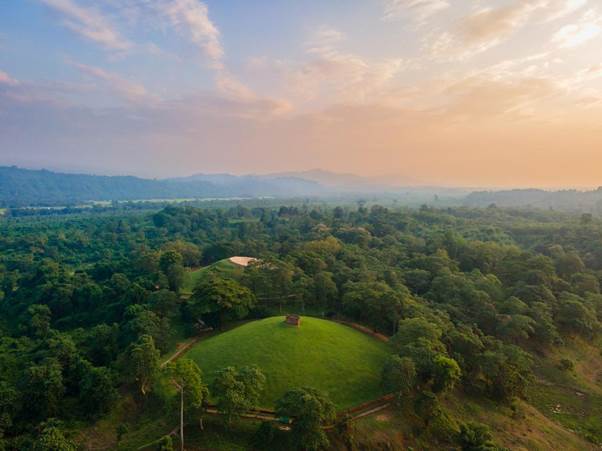
This is the third World Heritage Property from Assam, following Kaziranga National Park and Manas Wildlife Sanctuary, both inscribed under the Natural category in 1985. The Moidams of Choraideo, which celebrate and preserve royal lineage through colossal architecture, are comparable to the pyramids of Egyptian pharaohs and royal graves in ancient China.
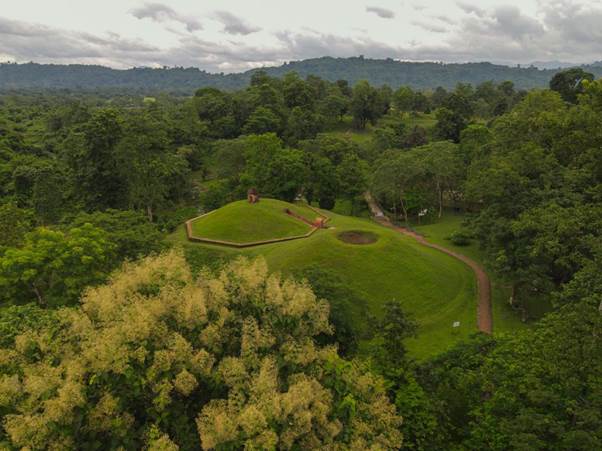
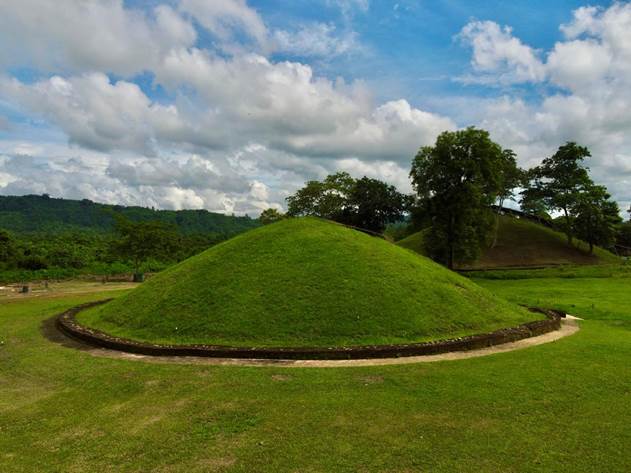
The purpose of including these heritage sites in UNESCO’s list is to preserve and promote shared heritage based on OUVs (Outstanding Universal Values) found in cultural, natural as well as mixed properties across 195 countries. On its part, India became a member of the World Heritage Committee from 2021-25 and is currently hosting its first ever session since joining UNESCO’s World Heritage Convention of 1972. The 46th session of the World Heritage Committee started on July 21st and will last until July 31st at Bharat Mandapam in New Delhi.

This annual meeting is attended by over 150 State Parties, all signatories to the UNESCO World Heritage Convention and is responsible for managing matters related to World Heritage, including the inscription of new sites.
Speaking at a press briefing after the announcement, the Union Minister of Culture and Tourism, Gajendra Singh Shekhawat said that this historic recognition brings global attention to the unique 700-year-old mound burial system of the Ahom Kings at Charaideo, highlighting the rich cultural heritage of Assam and Bharat. The journey of Moidams towards this prestigious recognition was spearheaded by the Prime Minister Narendra Modi, who nominated these ancient structures as India’s official entry in 2023. This nomination underscores the cultural and historical significance of the Moidams, making them the first cultural heritage site and the third overall site from the North East to be inscribed on the World Heritage list, he added.
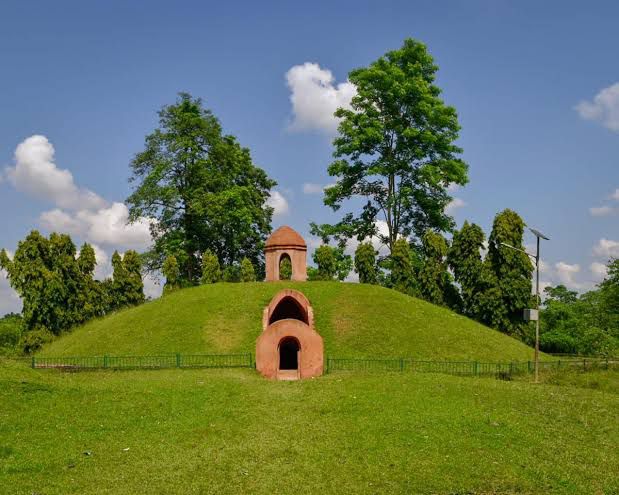
The Minister informed that India has successfully inscribed 13 World Heritage Properties in the last one decade, and now standing at the 6th position globally for the most number of World Heritage Properties. This global recognition is a testimony to New India’s relentless pursuit of highlighting Bharat’s heritage on the world forum.
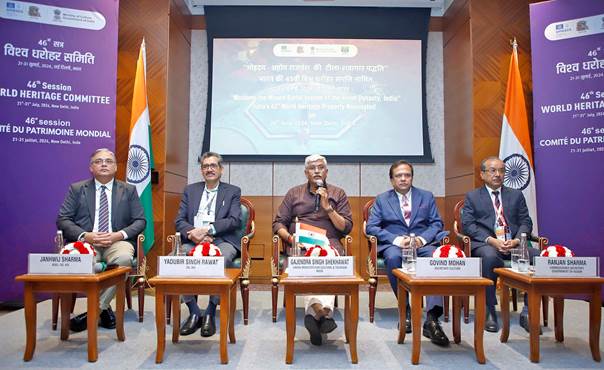
The Minister highlighted that inclusion of Moidams in the UNESCO World Heritage List is a testament to their outstanding universal value. The International Council on Monuments and Sites (ICOMOS) highlighted the Moidams’ exceptional testimony to a cultural tradition and their representation of significant stages in human history. This recognition underscores the efforts of the Archaeological Survey of India (ASI) and the Assam government in preserving these historic treasures, said the Minister.
Shri Shekhawat emphasized that it is crucial to promote the preservation of such monuments, which are abundant in India. The Moidams’ recognition as a UNESCO World Heritage Site serves as a reminder of the importance of conserving our cultural heritage for future generations. By visiting and supporting these sites, we contribute to their preservation and the broader narrative of India’s rich and diverse history, he stated.

About Moidams – The Mound-Burial System of the Ahom Dynasty
Moidams, a royal mound burial site created by the Tai-Ahom in northeastern India, is situated in the foothills of the Patkai Ranges in eastern Assam. These burial mounds areconsidered sacred by the Tai-Ahom and reflect their unique funerary practices. The Tai-Ahom people arrived in Assam in the 13th century, establishing Charaideo as their first city and the site of the royal necropolis. For 600 years, from the 13th to the 19th century CE, the Tai-Ahom constructed moidams, or “home-for-spirit,” using natural elements like hills, forests, and water to create a sacred geography.
Believing their monarchs to be divine, the Tai-Ahom developed a distinct funerary tradition of constructing moidams for royal burials. These mounds were initially built with wood and later with stone and burnt bricks, as documented in the Changrung Phukan, the Ahoms’ traditional canonical literature. Royal cremation rituals were conducted ceremoniously, reflecting the hierarchical structure of Tai-Ahom society.
The Archaeological Survey of India and the Assam State Department of Archaeology have collaborated to restore and preserve the integrity of Choraideo, despite challenges from early 20th-century treasure hunters. With protection from both central and state regulations, the site is well-maintained to preserve its structural integrity and cultural uniqueness.

The 46th Session of the World Heritage Committee
The 46th session of the World Heritage Committee in 2024 is currently examining 27 nominations from around the world, including 19 Cultural, 4 Natural, 2 Mixed sites, and 2 Significant modifications to existing boundaries. India’s Moidams – The Mound-Burial System of the Ahom Dynasty was the official entry from India this year under the category of Cultural Property.
The inaugural ceremony of the 46th Session of the World Heritage Committee was graced by the Prime Minister Shri Narendra Modi, in the august presence of Ms. Audrey Azoulay, Director-General of UNESCO, Dr. S. Jaishankar, Minister for External Affairs and Shri Gajendra Singh Shekhawat, Minister of Culture and Tourism. The event was attended by Culture Ministers, Ambassadors from various countries and Cultural Ministers from various state governments.
